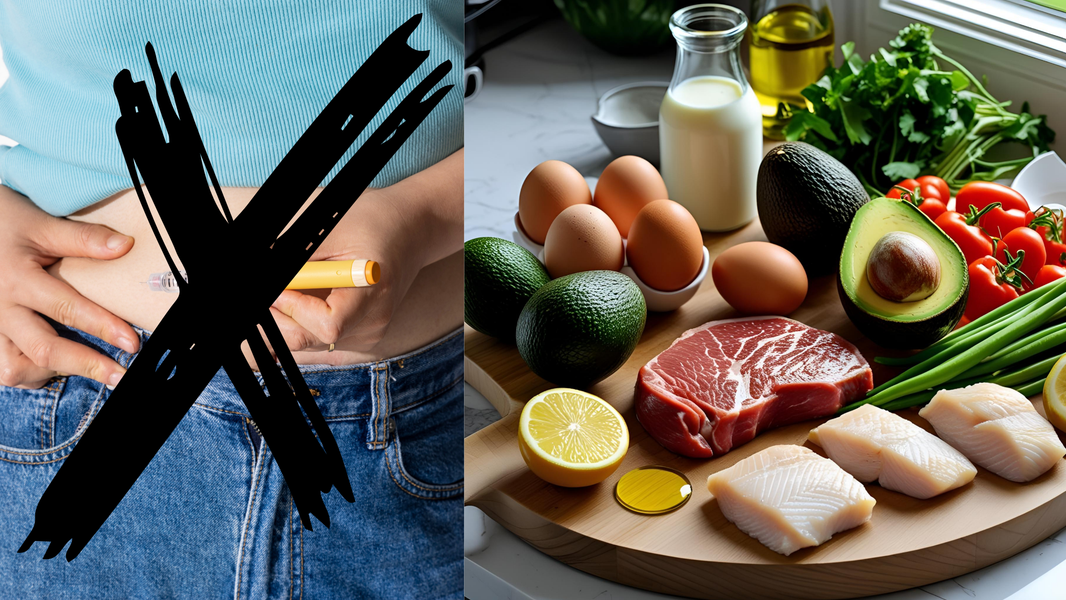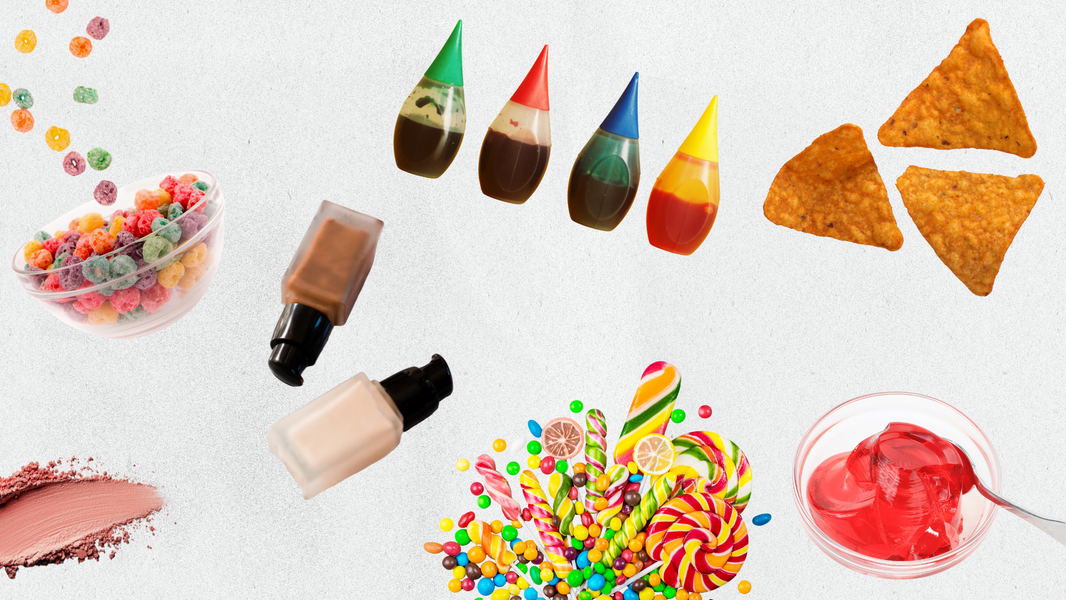Is sugar really bad for my health?
We’ve all heard that sugar is one of the big culprits interfering with our health.
Let’s take a deeper look. Sugar, also called carbohydrates, is a normal part of a balanced diet. If eaten in excess, though, it can cause obesity, fatigue, acne, headaches, tooth decay, hyperactivity, etc.
Sucrose, or “table sugar,” is often associated with “sweets” like candy, cake, cookies, soda, etc. Sugars can also hide in savory and salty foods, especially highly processed ones.
Even if you don’t realize you’re eating extra sugar, your body does!
The glucose from these foods affects our body in the same way as the glucose in candy (Damak, 2003).
In addition to the “hidden sugar” in these highly processed foods, they’re also mixed with extra fat, sodium, and appearance or flavor additives. This package can supercharge our bodies' natural craving for sugar.
These super-charged cravings can make it feel like we’re literally “addicted” to high-carbohydrate foods. Overconsumption of these foods leads to a dangerous breakdown in our body’s natural ability to process sugar. This breakdown has a name, Diabetes.
Every year, 1.4 million Americans are diagnosed with Diabetes. According to the CDC, Diabetes is currently the 7th leading cause of death in the United States.
On a physical level, diabetes is defined as the body's inability to process carbohydrates appropriately for energy. At the root of diabetes is the hormone insulin. Type 2 Diabetes occurs when our body doesn’t produce enough insulin to process the amount of sugar we eat.
In pre-and type 2 diabetes, the hormones that process carbohydrates and regulate fat storage( insulin) and those that control hunger (ghrelin) are sending our bodies the wrong signals ( Clara, 2018). This hormonal dysfunction leads to inflammation, excess fat storage, cravings, and a spiral of poor health.
If our body needs sugar to function, but too much sugar can cause such severe health problems, what's the answer?
The short answer is that our body needs carbohydrates in their natural form, like fruits and vegetables, which combine carbohydrates with gut-healthy fiber. This fiber maintains healthy insulin levels and feeds our gut microbiome, contributing to healthy sugar metabolism.
Can I use artificial sweeteners?
The “diet-industrial complex’s” standard answer to the carbohydrate problem is substituting energizing carbohydrates with calorie-free artificial sweeteners. This is a big difference between Betr and diet companies. We don’t subscribe to the philosophy that “calorie-free” always equals healthy.
Artificial sweeteners typically contain chemicals like saccharin, aspartame, acesulfame potassium (Ace-K), sucralose, neotame, advantame, and stevia.
Chemical names don’t ring a bell? Here are a few brands that you might be familiar with:
Splenda (sucralose) Sweet’N Low (saccharin) NutraSweet, Equal, or Sugar Twin (aspartame)
Many consumers don’t know the possible side effects and health risks associated with the ingestion of chemically processed artificial sweeteners. Common physical side effects of artificial sweeteners include headaches, dizziness, rashes, bloating, nausea, diarrhea, and digestive problems.
Some studies show that saccharin, sucralose, and aspartame could negatively change gut microbiota, increase glucose intolerance, and increase carbohydrate cravings. Additionally, studies of weight loss with artificial sweeteners have not found a significant link between using artificial sweeteners and weight loss.
Research also suggests a relationship between sweeteners and certain cancers, chronic fatigue syndrome, Parkinson's and Alzheimer’s disease, multiple sclerosis, autism, and systemic lupus (Tandel, 2011).
Look at labels for any processed foods and keep an eye out for any artificial sweeteners mentioned in this article- after all, they could hurt your gut bacteria!
Which sweeteners are best to use?
We encourage you to use natural sweeteners as much as possible before turning to artificial sweeteners. Some great, gut-healthy sweeteners include:
Agave syrup or crystals, Local honey, Maple syrup, Monk fruit (Luo Han), Stevia (pure)
How do I reduce sugar cravings?
Consume plenty of protein, fiber, and Omega-3 fatty acids. Omega-3 fatty acids are found in walnuts, salmon, tuna, flaxseeds, chia seeds, fish oil, and algal oil.
Most people don't eat enough fruit. The USDA recommended intake is 1.5 – 2 cups, and less than 13% of Americans consume this amount.
In real life, the USDA recommendation is equal to about two fruits (orange and an apple) a day, which is what Betr recommends!
Fruits combine sugar with fiber to feed good gut bacteria and provide healthy energy. They’re good for you, so enjoy them!
Clara R. Freeman, Amna Zehra, Veronica Ramirez, Corinde E. Wiers, Nora D. Volkow, Gene-Jack Wang. Impact of sugar on the body, brain, and behavior. Front. Biosci. (Landmark Ed) 2018, 23(12), 2255–2266. https://doi.org/10.2741/4704
Damak, S. et al. Detection of sweet and umami taste in the absence of taste receptor T1r3. Science 301, 850–853 (2003).
Examining the Health Effects of Fructose – David S. Ludwig, MD, PhD – Journal of the American Medical Association, July 2013
Tandel K. R. (2011). Sugar substitutes: Health controversy over perceived benefits. Journal of pharmacology & pharmacotherapeutics, 2(4), 236–243. https://doi.org/10.4103/0976-500X.85936






